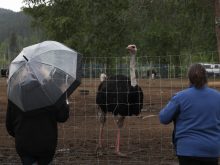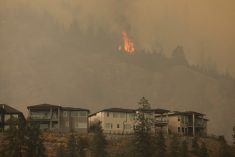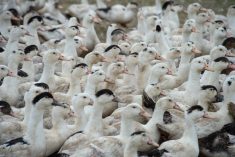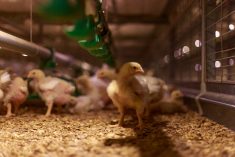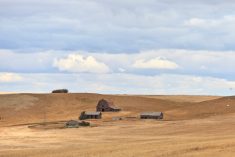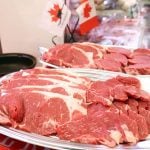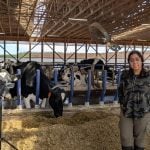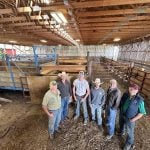With bird flu outbreaks and last spring’s weather woes in mind, farmers and ranchers in British Columbia are now spotted until the end of June to enrol in AgriStability.
The province and the federal ag department on Tuesday announced they’ve agreed on a late participation option for the 2022 program year.
In this case, the option allows for enrolment in the ag income stabilization program as long as farmers pay their program fees by June 30 this year. Usually the enrolment deadline is April 30 in the program year itself.
Read Also
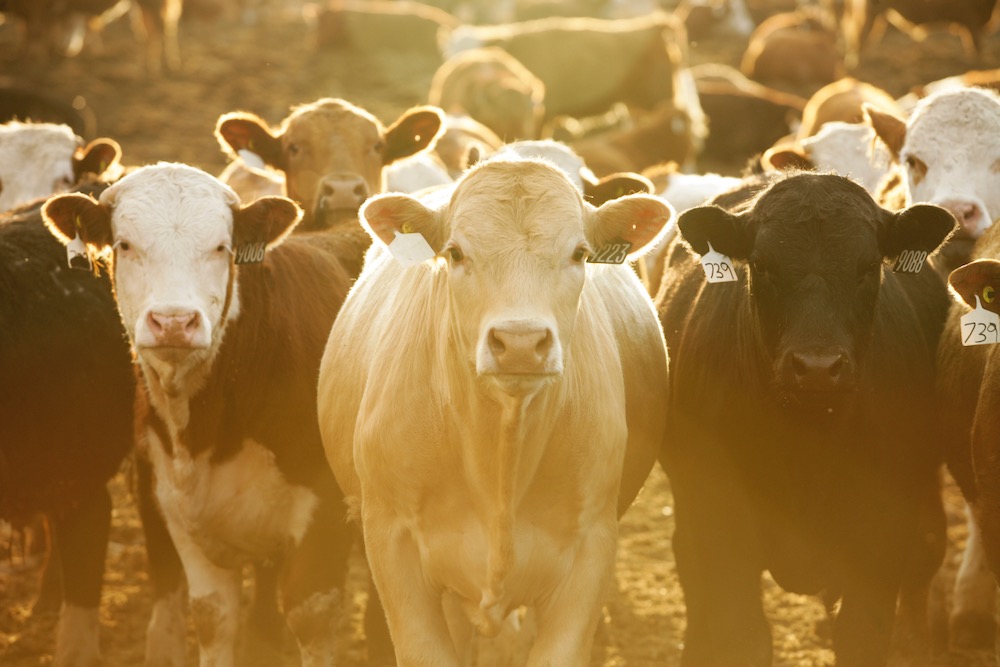
U.S. livestock: Cattle futures drop on Trump call for lower prices
Cattle futures on the Chicago Mercantile Exchange dropped sharply on Wednesday, reacting to comments from United States President Donald Trump…
“A severe avian influenza outbreak affected many Fraser Valley poultry producers in 2022, and some B.C. crop producers have also been dealing with production losses and revenue declines due to extreme weather events and abnormally cold temperatures,” the governments said in a joint release.
Late participants in AgriStability still need to comply with all other program requirements. For late participants, any payments — including interim payments — are reduced by 20 per cent.
AgriStability is a margin-based program meant to help producers manage large income declines, funded 60-40 by the federal and respective provincial governments.
Farm financial advisors have previously noted Canada’s supply-managed sectors, such as poultry, don’t generally see the sorts of margin declines suited to AgriStability — thus, the sector’s participation in AgriStability is generally low.
However, advisors have also said previous avian flu outbreaks in Canada showed such a decline is possible.
With that in mind, advisors have previously suggested producers consider whether the costs to participate in AgriStability are worth the coverage provided, compared to other insurance products they may already have.
Since the province confirmed its first outbreak of H5N1 on April 13 last year, cases of avian flu have been confirmed at 103 different premises in B.C. alone, impacting an estimated 3.657 million birds. Of the 103, 69 have since been released from quarantine.
Also, of the 103 affected properties, 75 were confirmed with avian flu during a stretch from last Nov. 14 to Jan. 22 this year, the bulk of which were in commercial poultry barns at or around Abbotsford and Chilliwack. No new cases have appeared in B.C. poultry since Jan. 22.
Along with the avian flu outbreaks, B.C. farmers in the spring of 2022 also contended with unusually cold and wet weather, due to what Environment Canada described as “a steady parade of cold lows from the north Pacific Ocean, along with the hangover effects of a two-year long La Niña.”
The cold weather stunted early development of fruit crops, while the wet conditions left many fields too wet to plant and left other early field crops “rott(ing) in the ground,” Environment Canada said in December, when it put B.C.’s wintery spring at No. 6 on its list of the top 10 weather stories for 2022.
‘Challenges’
“By allowing late participation in AgriStability, we will be able to offer financial support to more farmers and producers who need assistance due to factors, such as weather and disease, that were out of their control,” B.C.’s Ag Minister Pam Alexis said in Tuesday’s release.
“We recognize the challenges our agricultural community have faced over the past year, and we encourage anyone who is eligible to retroactively sign up, so they can improve their financial situation for the coming year, while continuing to produce the products we all appreciate and rely on.”
The federal and Alberta governments on Feb. 1 announced a similar late-participation option for AgriStability for that province’s poultry producers, following avian flu outbreaks there, but with an enrolment deadline of Feb. 28.
AgriStability is one of the business risk management programs funded under the Canadian Agricultural Partnership (CAP), the latest in a series of five-year federal-provincial-territorial multilateral framework agreements on agriculture and food policy.
CAP’s five-year successor agreement, dubbed the Sustainable CAP, is set to take effect April 1 this year. British Columbia on Wednesday became the second of the 10 provinces, after Ontario, to sign its funding agreement with the federal government for Sustainable CAP.
For B.C., the new funding agreement commits the federal and provincial governments to provide over $140 million for “strategic initiatives,” up 25 per cent from the current CAP deal, plus commitments of about $330 million for business risk management programs.
In B.C., the province noted Tuesday, AgriStability participation has been “consistent” over the past three years, with about 2,100 farmers enrolled in each of 2020, 2021 and 2022. Late participation options were granted in 2018 and 2021. — Glacier FarmMedia Network




